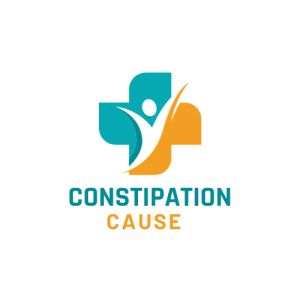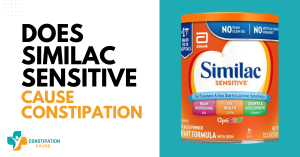Imagine a scenario where bedtime should be a peaceful night’s rest, but for many children and their families, it becomes a battleground against nocturnal mishaps.
Well, have you ever wondered about the mysterious connection between two childhood issues – constipation and bedwetting? It’s a topic that might not cross your mind every day, but the bond between these two discomforts is worth exploring.
In this article, we have discussed the unexpected correlation that exists between a common digestive problem and those late-night trips to the laundry room.
So, stay in the loop while we answer your question “Can Constipation Cause Bed Wetting?”
Does Constipation Cause Bed Wetting at night?
Yes, constipation can contribute to bedwetting at night. When the rectum is full, it can put pressure on the bladder, leading to difficulty in controlling urination during sleep. This pressure can also reduce the bladder’s capacity to hold urine, increasing the likelihood of bedwetting episodes. It’s important to address constipation to help alleviate bedwetting issues.
Additionally, constipation can disrupt normal sleep patterns and cause discomfort, leading to restless nights. Children who experience constipation may also feel embarrassed or ashamed, which can exacerbate feelings of stress and anxiety, further impacting their ability to control bladder function during sleep. Therefore, addressing constipation through dietary changes, increased water intake, and medical interventions can be crucial in managing bedwetting episodes and promoting better overall sleep hygiene for children.
Some children may experience changes in bowel habits when transitioning to Bobbie formula, potentially impacting their stool regularity. It’s essential to monitor for any signs of constipation after starting Bobbie formula and consult a pediatrician if concerns arise.
What is Bedwetting?
Bedwetting, also known as nocturnal enuresis, is the involuntary release of urine during sleep in children aged five or older. It’s a common childhood condition that can be distressing for both children and their families
Common Causes of Bedwetting
Common causes of bedwetting include:
- Delayed Bladder Maturity: Some children’s bladders mature later, leading to difficulties in holding urine overnight.
- Genetics: Bedwetting can run in families, suggesting a genetic component.
- Hormonal Factors: Insufficient production of an antidiuretic hormone (ADH) at night may lead to increased urine production.
- Emotional Stress: Anxiety, changes in routine, or emotional stressors can trigger bedwetting.
- Constipation: A full rectum can put pressure on the bladder, leading to involuntary nighttime urination.
- Urinary Tract Infections: Infections can irritate the bladder and cause bedwetting.
- Sleep Disorders: Conditions like sleep apnea may disrupt sleep patterns, contributing to bedwetting.
The Connection between Constipation and Bedwetting
Constipation and bedwetting are connected through a physical and physiological relationship. When a child is constipated, the rectum may become full, exerting pressure on the bladder. This pressure can reduce the bladder’s capacity to hold urine, making it more likely for a child to experience nighttime bedwetting. Additionally, constipation can disrupt the normal functioning of the urinary and digestive systems, leading to an increased risk of bedwetting. Understanding and addressing constipation can be a key step in managing bedwetting in children.
Can chronic constipation lead to nocturnal enuresis?
Constipation can significantly impact bladder control and play a role in bedwetting incidents. Here’s relationship between constipation and bedwetting in children:
- Pressure on the Bladder: When a child is constipated, the rectum can become filled with hard stool. This can exert physical pressure on the adjacent bladder, reducing its capacity to hold urine effectively. As a result, the child may experience urgency and have little control over nighttime urination.
- Overactive Bladder: Chronic constipation can lead to an overactive bladder. The bladder may become more sensitive and prone to involuntary contractions, causing sudden and uncontrollable releases of urine, especially during sleep.
- Disturbed Sleep Patterns: The discomfort caused by constipation can lead to disrupted sleep patterns. A child might wake up multiple times during the night, further increasing the likelihood of bedwetting incidents.
- Psychological Stress: Experiencing constipation and bedwetting can lead to psychological stress in children. The fear or embarrassment associated with bedwetting can exacerbate both conditions, creating a cycle that is difficult to break.
Managing Bedwetting:

Constipation-induced nocturnal enuresis in kids can be managed through the following strategies:
- Behavioral Strategies: Implement bedwetting alarms, reward systems, and fluid management to encourage dry nights.
- Lifestyle Changes: Encourage regular bathroom trips, limit evening fluids, and maintain a consistent sleep schedule.
- Medications: Consult a healthcare professional for prescription medications when behavioral methods alone are insufficient.
- Seeking Medical Advice: Consult a healthcare provider to rule out underlying medical conditions and explore treatment options tailored to the child’s needs.
Professional Help:
The role of constipation in nocturnal enuresis sometimes results in the need to seek a professional help especially when:
- Persistent Issues: Bedwetting caused by persistent constipation calls for immediate professional help
- Sudden Onset: When these problems occur suddenly and without an obvious cause.
- Emotional Impact: If constipation or bedwetting is causing significant emotional distress or affecting a child’s quality of life.
- Underlying Conditions: When there is suspicion of underlying medical conditions contributing to these issues.
- Lack of Improvement: If home-based remedies and strategies do not yield positive results, it’s wise to consult a healthcare professional for expert guidance and personalized treatment options.
Dietary Recommendations
Dietary Recommendations to Prevent and Alleviate Constipation in Children:
- Fiber-Rich Foods: Encourage a diet rich in fiber, including whole grains, fruits, and vegetables, as these promote regular bowel movements.
- Hydration: Ensure your child drinks an adequate amount of water throughout the day to soften stools and aid digestion.
- Prunes and Prune Juice: Prunes are natural laxatives; including them in the diet or offering prune juice can be effective.
- Probiotic-Rich Foods: Yogurt and fermented foods can support a healthy gut, potentially reducing constipation.
- Limit Processed Foods: Minimize processed and sugary snacks, which can contribute to constipation.
- Regular Meals: Encourage your child to eat regular meals and snacks to maintain a consistent schedule for bowel movements.
- Avoid Excessive Dairy: In some cases, excessive dairy intake can lead to constipation, so monitor dairy consumption.
- Balanced Diet: Ensure your child’s diet is well-balanced and incorporates a variety of foods from all food groups.
These dietary recommendations can play a significant role in preventing and alleviating constipation in children, promoting overall digestive health. However, it’s essential to be mindful of potential side effects of medications like Phentermine which may lead to constipation.
Conclusion:
In conclusion, this article has explored the intriguing connection between constipation and bedwetting, shedding light on their intertwined nature. We’ve discussed how constipation, through physical and physiological mechanisms, can disrupt bladder control and contribute to bedwetting in children. Recognizing the signs and understanding this link is paramount, as it highlights the importance of addressing constipation in the management of bedwetting. By doing so, parents, caregivers, and healthcare professionals can work together to alleviate the discomfort and emotional impact of these conditions on children. Effective management not only promotes dry nights but also ensures the overall well-being of the child. Understanding and acting upon this connection can make a significant difference in the lives of those affected by these common childhood issues. I hope this article answered your question “Can Constipation Cause Bed Wetting?”
Frequently Asked Questions
Can Constipation Really Cause Bedwetting?
Yes, constipation can indeed cause bedwetting in children.
What Age Group Is Most Affected by Constipation-Induced Bedwetting?
Constipation-induced bedwetting can affect various age groups, but it’s more common in younger children.
Are There Natural Remedies for Treating Constipation in Children?
Natural remedies like dietary changes and increased water intake can help treat constipation in children.
Is Bedwetting Always Linked to Constipation in Children?
Bedwetting is not always linked to constipation in children, but it can be a contributing factor.
How Can Parents Support Their Child Emotionally While Dealing with Bedwetting?
Parents can support their child emotionally by offering reassurance, maintaining a positive attitude, and avoiding blame or shame.
When Should I Seek Medical Advice for My Child’s Bedwetting Problem?
Seek medical advice for your child’s bedwetting problem if it persists beyond age-appropriate stages, causes emotional distress, or if there’s suspicion of underlying medical conditions.









Leave feedback about this